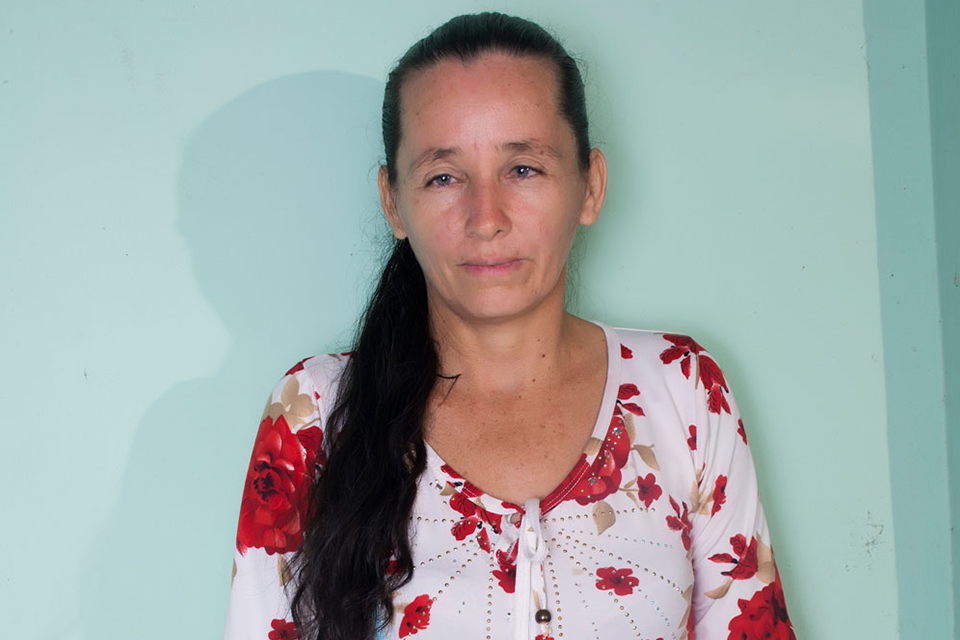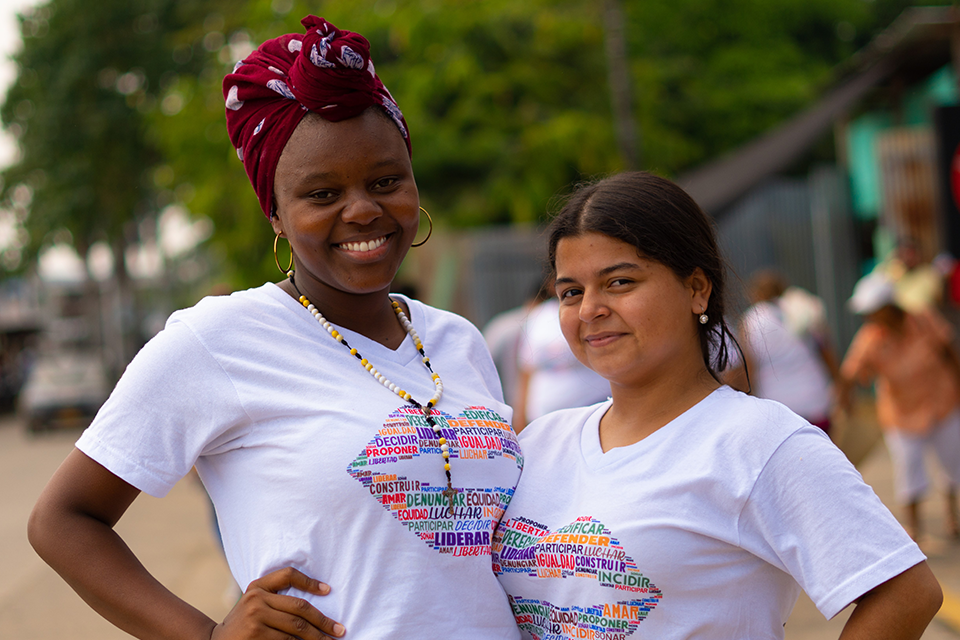Colombian women make progress toward peacebuilding
Date:
Thousands of women in Colombia seek the truth about what happened to their loved ones who disappeared during the internal conflict. And there are many others who, driven by making their leadership an opportunity to help their communities are increasingly consolidating peace in their territories.
In the municipality of Vista Hermosa, department of Meta, a project sought to generate protective environments for access to economic, social, and cultural rights for young and adult women, victims of the Colombian armed conflict in this area of the country. The women say that it succeeded in strengthening their emotional, psychosocial, and political capacities to influence peace in their territories.
We spoke with two of them: Ludivia Rey, who has been searching for her mother, who disappeared in the context of the conflict since 1985. She advanced with the training and psycho-legal process for the documentation of cases of sexual violence and forced disappearance in the framework of the initiative to bring them before the Integral Justice System. And with Jenny Arboleda, a young participant in the political training school, 'I can: gender, youth, and leadership for peace.'
Ludivia Rey: 'this project gave us hope to have news about our loved ones.'

Photo: Ludivia Rey
"My mother disappeared on January 15, 1985, while going to Granada, Meta. I was very young, but it has been a pain I have lived with all my life. The things I remember about my mother are very few. In the beginning there were many inconveniences to filing a missing person's report because they believed that my family and I were trying to take economic advantage of the situation. As time went by, they rejected the case because they could not identify which armed group was responsible for my mother's disappearance. We have made progress with the DNA samples so that the authorities have them in the case at some point they find some of her remains, but so far, we are like in 1985: we know nothing about what happened to my mother.
One lives with anxiety every day. It is challenging because one always keeps the hope of having good news from their relatives, and meeting in this space was fundamental. However, participating in this project helped me to meet other daughters, wives, mothers, and nieces, who, like me, are looking for their loved ones who disappeared during the conflict.
In addition to meeting other women who are going through the same or similar pain as us, this project provided us with psychological and legal support to assert our rights as victims, often so violated by the challenges of accessing justice. We learned how the Integral Justice System works and how to document the cases of our relatives in order to bring them to justice. This has empowered us and we have created bonds with the other women who are also seeking the truth. The project made us hope that someday we will finally know what happened to our loved ones.
Jenny Arboleda: young women are the future for peace in the country.

Photo: Cortesía Jenny Arboleda
"Vista Hermosa has been a town hard hit by the conflict. There are thousands of families who carry immense pain because their relatives disappeared or because of many cases of sexual violence. By participating in the leadership school, one becomes more aware of all this and of the importance for young people to fight for their rights, overcome themselves, and be brave. For my part, all the knowledge I acquired that had to do with how the Integral Justice System works and what I can do to contribute to peace as a young woman, I have replicated it in other spaces in which I participate. Thus, more and more women like me are becoming aware of our potential. These are challenging times for young people because of the violence in many parts of the country, and this knowledge allows us to advance in the protection of our rights.
With this empowerment that the school gave us, the idea is that we unite with our colleagues in the project and call on more women in the municipality so that the authorities listen to us. For them not to underestimate us as leaders, we must insist on moving the community forward. We, young women, are the future for the consolidation of peace in Colombia and the school allowed us to become aware of this".
The project was carried out within the framework of the Gender and Youth Promotion Initiative (GYPI). The United Nations Secretary-General's Peacebuilding Fund (PBF), UN Women, and the Office of the United Nations High Commissioner for Human Rights developed a Territorial Model for Guarantees of Non-Repetition and Empowerment of Women and Youth for their access to the Comprehensive System of Truth, Justice, Reparation, and Non-Repetition (SIVJRNR). This project has a budget of US$1.5 million.
| The initiative involved organizations of victims, women, and young people with experience in psycho-legal accompaniment for victims of sexual violence and forced disappearance and in training processes for strengthening citizen participation, advocacy, and territorial peacebuilding, such as Corporación Sisma Mujer, Asociación de Mujeres Desplazadas del Meta (Asomudem) and Corporación Yo Puedo. These entities were able to link and promote the empowerment of 5293 young urban and rural women in the municipality of Vista Hermosa, most of whom are victims of the conflict. |
|
The Corporación Sistema Mujer led the psychosocial and legal accompaniment, the collection of information, and the systematization of four reports submitted to the Integral Justice System. In this process, 117 women from Vista Hermosa were involved in the collection and systematization of testimonies, of which 74 shared their stories to document their cases and submit them to the System, 65 victims of forced disappearance, and nine victims of sexual violence. From the Corporation Yo Puedo process, a report was submitted to the Special Jurisdiction for Peace (JEP) on recruitment and forced disappearance, a social dialogue with the Truth Commission, and search recommendations with young people with the Unit for the Search for Missing Persons. |